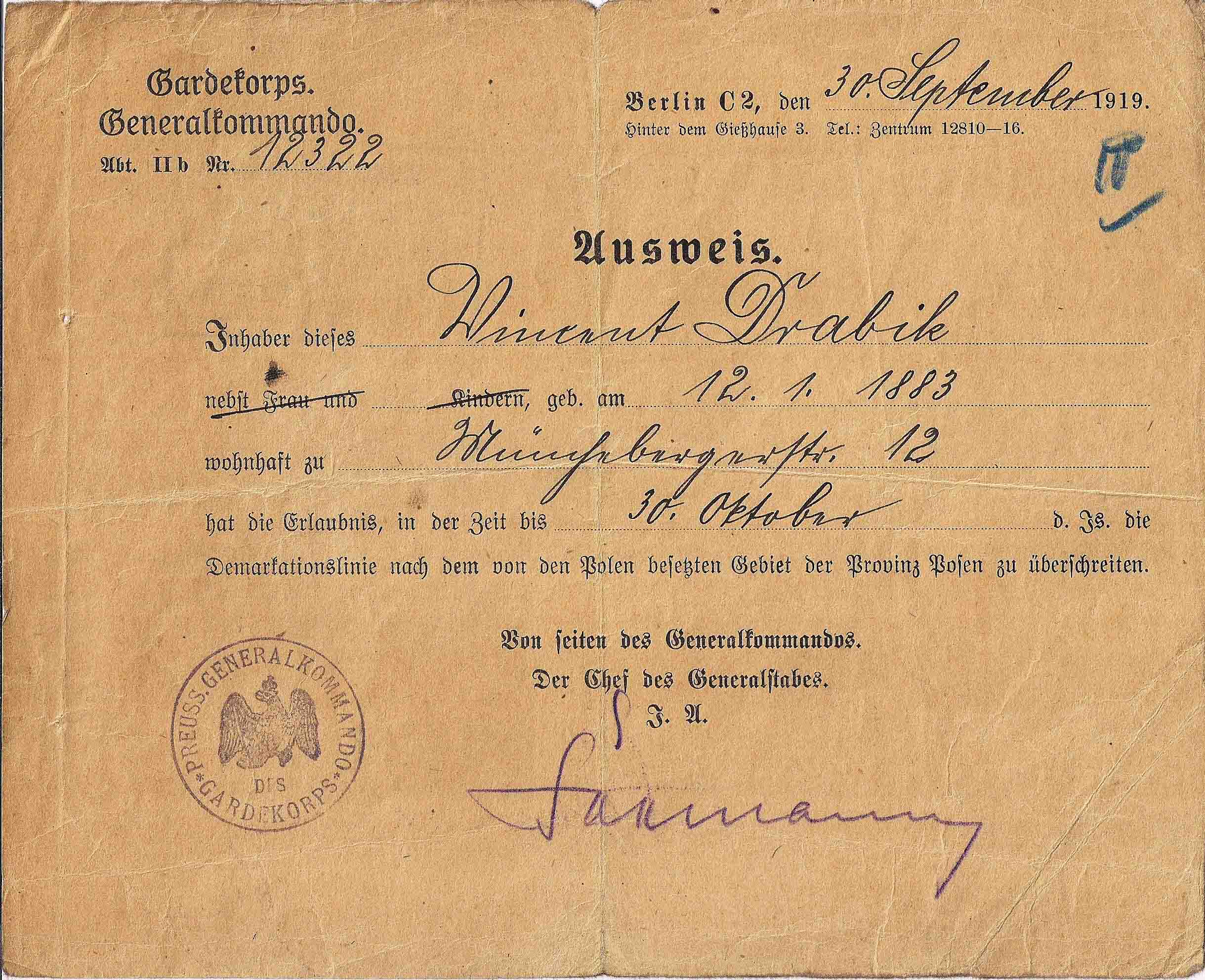|
Standesamt Podstolitz
Standesamt Podstolitz was a civil registration district ( Standesamt) located in Kreis Kolmar, province of Posen of the German Empire The German Empire (),Herbert Tuttle wrote in September 1881 that the term "Reich" does not literally connote an empire as has been commonly assumed by English-speaking people. The term literally denotes an empire – particularly a hereditary ... (1871-1918) and administered the communities of: Bud = Budsin; Kol = Kolmar; Mar = Margonin; Pods = Podstolitz External links ''This article is part of the project'' Wikipedia:WikiProject Prussian Standesamter''. Please refer to the project page, before making changes.'' Civil registration offices in the Province of Posen {{Germany-hist-stub ... [...More Info...] [...Related Items...] OR: [Wikipedia] [Google] [Baidu] |
Standesamt
A Standesamt (German, plural "Standesämter") is a German civil registration office, which is responsible for recording births, marriages, and deaths. Soon after the German Empire was created in 1871 from the previous collection of German states (kingdoms, duchies, etc.), a universal system of register offices was established, taking effect on January 1, 1876. The system had previously been introduced in Prussia on October 1, 1874, and had been in use since the beginning of the 19th century in areas where the French Civil Code applied. Usually, the office was located in the local city or town hall. Today, those register offices (Standesämter) are still part of the administration of every German municipality (in small communities, they are often incorporated with other offices of the administration). Since 1876, Germans in Germany can only enter into a legal marriage in a Standesamt. Therefore, every German marriage takes place before the local registrar (called ''Standesbeamter' ... [...More Info...] [...Related Items...] OR: [Wikipedia] [Google] [Baidu] |
Kreis Kolmar In Posen
The Kreis Kolmar in Posen (1818–1877 ''Kreis Chodziesen'') was a district in the northern government region of Bromberg, in the Prussian Province of Posen, from 1818 to 1920. The district capital was Kolmar in Posen. History The ''district of Chodziesen'' was formed in 1818. It became part of the German Empire in 1871. On March 6, 1877, the district and the district town of Chodziesen were renamed Kolmar in Posen. On 1 April 1914 the city of Schneidemühl was disentangled from the district and became an independent town (Stadtkreis) within the Bromberg Region. On December 27, 1918, the Greater Poland uprising began in the province of Posen. Except for the south of the district around the town of Budsin, the Kolmar district remained largely under German control. On February 16, 1919, an armistice ended the Polish-German fighting. On June 28, 1919, with the signing of the Treaty of Versailles, the German government officially ceded most of the district including the capital K ... [...More Info...] [...Related Items...] OR: [Wikipedia] [Google] [Baidu] |
Province Of Posen
The Province of Posen (german: Provinz Posen, pl, Prowincja Poznańska) was a province of the Kingdom of Prussia from 1848 to 1920. Posen was established in 1848 following the Greater Poland Uprising as a successor to the Grand Duchy of Posen, which in turn was annexed by Prussia in 1815 from Napoleon's Duchy of Warsaw. It became part of the German Empire in 1871. After World War I, Posen was briefly part of the Free State of Prussia within Weimar Germany, but was dissolved in 1920 when most of its territory was ceded to the Second Polish Republic by the Treaty of Versailles, and the remaining German territory was later re-organized into Posen-West Prussia in 1922. Posen (present-day Poznań, Poland) was the provincial capital. Geography The land is mostly flat, drained by two major watershed systems; the Noteć (German: ''Netze'') in the north and the Warta (''Warthe'') in the center. Ice Age glaciers left moraine deposits and the land is speckled with hundreds of "finger l ... [...More Info...] [...Related Items...] OR: [Wikipedia] [Google] [Baidu] |
German Empire
The German Empire (),Herbert Tuttle wrote in September 1881 that the term "Reich" does not literally connote an empire as has been commonly assumed by English-speaking people. The term literally denotes an empire – particularly a hereditary empire led by an emperor, although has been used in German to denote the Roman Empire because it had a weak hereditary tradition. In the case of the German Empire, the official name was , which is properly translated as "German Empire" because the official position of head of state in the constitution of the German Empire was officially a "presidency" of a confederation of German states led by the King of Prussia who would assume "the title of German Emperor" as referring to the German people, but was not emperor of Germany as in an emperor of a state. –The German Empire" ''Harper's New Monthly Magazine''. vol. 63, issue 376, pp. 591–603; here p. 593. also referred to as Imperial Germany, the Second Reich, as well as simply Germany, ... [...More Info...] [...Related Items...] OR: [Wikipedia] [Google] [Baidu] |
WikiProject Prussian Standesamter
A WikiProject, or Wikiproject, is a Wikimedia movement affinity group for contributors with shared goals. WikiProjects are prevalent within the largest wiki, Wikipedia, and exist to varying degrees within sister projects such as Wiktionary, Wikiquote, Wikidata, and Wikisource. They also exist in different languages, and translation of articles is a form of their collaboration. During the COVID-19 pandemic, CBS News noted the role of Wikipedia's WikiProject Medicine in maintaining the accuracy of articles related to the disease. Another WikiProject that has drawn attention is WikiProject Women Scientists, which was profiled by '' Smithsonian'' for its efforts to improve coverage of women scientists which the profile noted had "helped increase the number of female scientists on Wikipedia from around 1,600 to over 5,000". On Wikipedia Some Wikipedia WikiProjects are substantial enough to engage in cooperative activities with outside organizations relevant to the field at issue. For ... [...More Info...] [...Related Items...] OR: [Wikipedia] [Google] [Baidu] |
